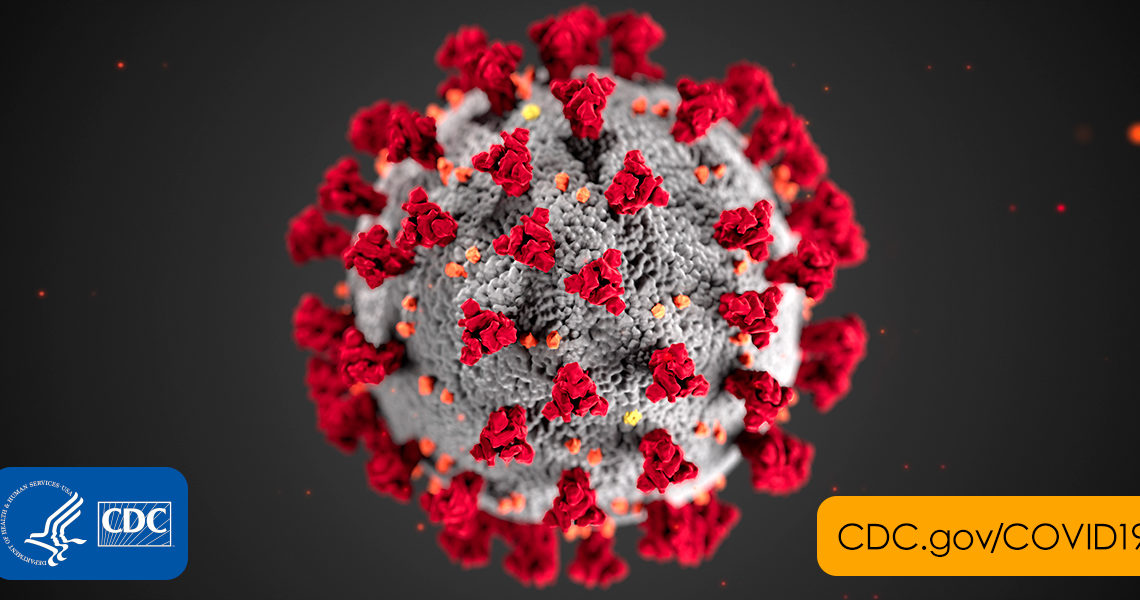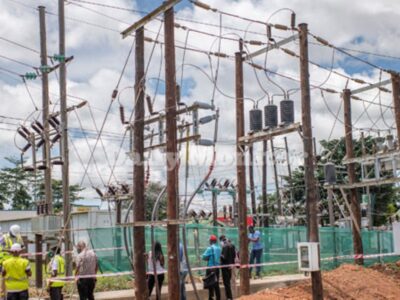Coronavirus has now infected more than a million people in Africa, but hopes that the pandemic may be peaking in some countries are also leavened by fear of a second wave.
Nations across the continent have recorded 1,000,054 infections and at least 21,724 deaths, accounting for around five percent of global cases, according to an AFP tally as of Thursday.
Just five countries account for 75 percent of all cases in Africa, the continent’s health watchdog, the Africa Centres for Diseases Control, says.
The World Health Organization (WHO) said Thursday some countries have recently seen declines of around 20 percent in daily cases but it was too early to confirm this as a trend, while around 10 countries are still experiencing increases.
Countries with high infections relative to the size of their populations are South Africa, Djibouti, Gabon, Cape Verde and Sao Tome and Principe.
Here is an overview of key countries:
South Africa
The continent’s most industrialised economy has notched up more than 529,000 infections, 53 percent of the continental caseload, and the fifth biggest in the world.
The good news is that numbers of daily infections have slightly decreased in recent days to below 10,000 cases compared to an average 12,000 during much of July.
Health Minister Zweli Mkhize said on Tuesday that cases in the epicentre, the commercial hub of Gauteng province, appeared to be plateauing.
But he warned the risk of a second wave remained: “we are not out of the woods yet”.
South Africa imposed one of the world’s toughest lockdowns in March, including a ban on sales of alcohol and cigarettes. The restrictions have been progressively eased since June.
The country has some of the best healthcare facilities on the continent, but the World Health Organisation (WHO) this week deployed 43 experts to “strengthen” the nation’s response to the pandemic.
Among its problems: more than 24,000 health workers have been infected — a tally bigger than the national caseload of many other African countries.
Egypt
Egypt became the first African country to report a coronavirus case on February 14. So far, it has officially registered the continent’s second highest number of cases, with 95,000, including 4,630 deaths.
Numbers of daily new infections have recently been falling steadily. From an average of 1,500 previously, new cases plunged below 200 this week.
Jihane al-Assal, who heads the government’s anti-coronavirus scientific panel, told a TV talk show “Egypt has passed the peak of the pandemic”.
At the weekend she announced the gradual closure of isolation hospitals, while assuring that the government was “preparing” for a potential second wave of the pandemic.
However, the country’s health system has been severely strained and came close to “collapsing”, according to the doctors’ union, which recorded at least 134 deaths among its members due to COVID-19.
A curfew imposed in March was lifted at the end of June.
Regular domestic and international air traffic resumed on July 1 and tourism, a key income generator for the country, is slowly picking up.
Nigeria
Around 45,000 cases have been recorded in Nigeria, Africa’s most populous nation, and more than 900 deaths.
In June, the daily caseload rose by between 500 and 800 but latterly has dropped to between 300 and 400.
Authorities say they are also gearing for a likely second wave as restrictions are eased.
“New rise in cases are to be expected,” said the chief of the presidential task force on COVID-19, Boss Mustapha.
Nigeria carries out only 3,000 tests per day, about a tenth of the number in South Africa, which has a much smaller population of 58 million.
The epicentre is the commercial hub of Lagos with a population of 20 million. The authorities are loosening lockdown restrictions, allowing churches and mosques to re-open.
Algeria
Algerians spent a bleak Eid el Adha festival under a strict lockdown that discouraged family visits and banned movement into or out of 29 of the country’s 48 wilayas (prefectures).
The nation is the fifth worst-hit in Africa in terms of infections — a surge in the past few weeks has brought the total to over 33,000.
Algeria has the continent’s third highest number of fatalities at 1,273, after South Africa and Egypt.
The pandemic has taken a huge toll on the country’s economy, which is also facing the collapse of fossil-fuel prices.
Ethiopia
Ethiopia, Africa’s second most populous country, has seen a sharp upward trend with infections doubling in less than three weeks in July.
It has so far recorded more than 20,000 cases and over 365 deaths.
The figures are small relative to a population of 110 million, but the WHO frets unrest sparked by the killing of a pop star from the Oromo ethnic group could further accelerate transmission.
The upward spiral is coinciding with mounting signs of virus fatigue.
Once-ubiquitous hand-washing stations are becoming scarcer.
Hitherto-empty restaurants are filling up, and even some health workers say they are struggling to maintain the same vigilance they had in March.
Around three-quarters of all COVID-19 cases in Ethiopia are in the capital Addis Ababa.
Zimbabwe
Zimbabwe is among the countries where daily infections are steadily rising: numbers of diagnosed cases doubled over 10 days last month and now stand at 4,200, including 81 fatalities.
The impoverished country is in a particularly precarious position.
The health system is struggling with shortages of basic drugs and equipment, as well as an overburdened and underpaid staff.
Nurses countrywide have been on a go-slow for months demanding improved remuneration and coronavirus protective gear. They have since been joined by senior and junior doctors.
Burying a minister who died from COVID-19, President Emmerson Mnanagwa pleaded with health workers to act responsibly, promising their grievances will be addressed but not “at the expense of the loss of lives”.
“When the pandemic spreads and the death toll rises there are no winners, none at all. We all die,” he said.












